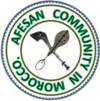History of the Afemai People
The Afemai people (also known as Afenmai, Etsako Auchi, or Kukuruku are a prominent ethnic group in Edo North Senatorial District of Edo State, Nigeria. They are the second-largest ethnic group in the state after the Edo (Bini) people. The Afemai are known for their strong warrior heritage, rich culture, entrepreneurial spirit, and historical resistance to external domination.
Origins and Migration
Connection to the Benin Kingdom
The Afemai trace their ancestry to the ancient Benin Kingdom. Oral traditions and historical accounts suggest that they migrated from the Benin area during the reign of Oba Ewuare the Great (mid-15th century) and subsequent rulers. Several waves of migration occurred due to internal crises in the Benin Kingdom, especially during periods of war, tyranny, or succession disputes.
Many groups fled the authority of the Benin Obas, seeking refuge in the hilly and forested regions to the north. These settlers eventually formed what is now known as the Afemai ethnic group, spread across multiple communities and dialect zones.
Composition of Afemai People
The Afemai are not a single homogenous group but a collection of related subgroups, united by language, ancestry, and geography. The major Afemai clans or sub-ethnic groups include:
1. Etsako
2. Owan
3. Akoko-Edo
Each of these has further subgroups and dialects, such as:
Auchi,
Fugar,
Agenebode, Aviele (Etsako)
Sabongida-Ora, Afuze, Uokha (Owan)
Igarra, Ibillo, Ososo, Lampese (Akoko-Edo)
While they speak various dialects, the Afemai language is part of the Edoid language family, closely related to the Bini (Edo) language.
The Name “Afemai” or “Afenmai”
The name “Afemai” is believed to derive from a phrase meaning “We have agreed” in one of the local dialects, possibly symbolic of unity among the various clans during migration or resistance.
During colonial rule, the British referred to the area as the “Kukuruku Division”, a name derived from the hilly terrain and possibly from the sounds of birds in the forest. Though no longer in official use, some still refer to Afemai land as the Kukuruku Hills.
Pre-Colonial Society and Culture
The Afemai people traditionally lived in autonomous or semi-autonomous communities governed by councils of elders, chiefs, and priests. Some towns like Auchi, Uzairue, and Agenebode developed more centralized leadership under traditional rulers like the Otaru of Auchi.
Religion and Belief Systems
Before the arrival of Islam and Christianity, the Afemai people practiced African traditional religion, worshipping deities like:
Osinegba (Supreme God)
Ancestral spirits (Erinmwin)
Local deities and nature spirits
Festivals, rituals, and masquerade performances were an integral part of community life.
Contact with Islam and Christianity
Islam
Islam spread into Afemai land mainly through trade routes from the north, especially via the Nupe and Hausa traders. Towns like Auchi, Agbede, and Ibie became strong Islamic centers as early as the 18th and 19th centuries.
Auchi, in particular, is a
predominantly Muslim town today, and it remains a center of Islamic scholarship in southern Nigeria.
Christianity
Christian missionaries arrived in the early 20th century, especially during the British colonial period. Today, many Afemai people are Christians, and traditional religion is still practiced in some areas.
Colonial Era and Resistance
The Afemai region experienced strong resistance to British colonial rule. Several communities resisted taxation, forced labor, and the imposition of foreign laws.
The “Ekperi War” and uprisings in Akoko-Edo and Owan areas were significant examples of this resistance. Eventually, the British subdued the region and incorporated it into the Kukuruku Division of colonial Nigeria.
Post-Independence and Modern Era
After Nigeria gained independence in 1960, the Afemai people continued to play key roles in state and national development. Edo North (where Afemai people dominate) became one of the three senatorial districts in Edo State.
Afemai communities are known for:
Education
Trade and entrepreneurship
Agriculture (yam, rice, maize, cassava, etc.)
Civil service and politics
Notable towns include:
Auchi
Agenebode
Igarra
Sabongida-Ora
Fugar
Owan towns
Notable Afemai Personalities
The Afemai region has produced many influential Nigerians in politics, business, academia, and religion. Some include:
Adams Oshiomhole – former Edo State governor and labor leader.
Chief Mike Oghiadomhe – former Chief of Staff to President Goodluck Jonathan.
Chief Julius Momo Udochi – Nigeria’s first ambassador to the U.S.
Afemai Culture Today
Afemai culture is marked by:
Rich folklore and storytelling
Traditional music and dance (e.g., Ighede dance)
Marriage ceremonies with elaborate customs
Masquerades and festivals
Respect for elders and communal living
There is also a growing movement to preserve the Afemai language and heritage, especially among younger generations and the diaspora.
Summary
Aspect and Details
Ethnic Group: Afemai (Afenmai)
Location: Edo North (Etsako, Owan, Akoko-Edo LGAs) |
Origin: Migration from Benin Kingdom
Language Edoid (Afemai dialects)
Religion: Traditional, Islam, Christianity
Colonial Name: Kukuruku Division
Major Towns: Auchi, Agenebode, Igarra, Fugar, Sabongida-Ora
Occupations: Farming, trade, civil service
Notable Figures: Adams Oshiomhole, Mike Oghiadomhe.
